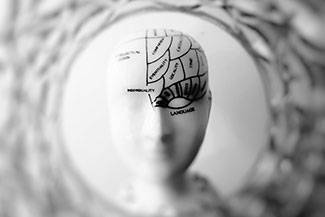
How Neuro-Optometric Vision Rehabilitation Can Help You Post-Concussion
If you’re grappling with post-concussion symptoms, you’re not alone. A significant number of individuals, up to 90%, experience vision problems after a head injury. This condition, known as Post-Traumatic Vision Syndrome (PTVS), arises when the eyes are physically healthy but not communicating effectively with the brain. Unfortunately, many healthcare providers often miss the signs of PTVS and lack the knowledge to address it. Since our visual system has a connection to the brain, injuries like concussions can severely affect vision. The good news is that neuro-optometric vision rehabilitation offers hope for improving sight and relieving the often debilitating symptoms that persist after a concussion.
What Are The Common Post-Concussion Symptoms?
After a concussion, symptoms can vary from person to person, but some common ones include:
- Dizziness
- Nausea
- Balance and coordination difficulties
- Reading and focusing difficulties
- Sensitivity to light
- Poor depth perception
- Headaches or migraines
- Double vision
Untreated, these vision issues can be disabling and even lead to more concussions, especially in sports. Specific vision problems following a brain injury can involve issues with eye focusing, making vision blurry or hindering the ability to shift focus between near and far objects. Eye teaming problems can lead to double vision, while difficulties with eye movements, like eye tracking while reading, are common. Additionally, motion sensitivity can disrupt the connection between vision and balance, causing symptoms such as motion sickness, disorientation, and dizziness, especially in busy environments. Remember, proper evaluation and care are essential for addressing a wide range of post-concussion vision problems, varying from subtle to more pronounced.
How Neuro-Optometric Rehabilitation Can Help
After a concussion or brain injury, treatment approaches are highly individualized due to the unique nature of each injury. Here are some common types of treatments:
- Vision Therapy: This personalized program aims to enhance communication between your eyes, brain, and body, improving visual skills like depth perception, hand-eye coordination, eye tracking, focusing, and peripheral vision.
- Specific Prescription Lenses (Glasses): These lenses compensate for neural system damage while enhancing visual clarity and comfort. Lens filters can also assist with glare and light sensitivity.
- Prism Lenses: Specialized glasses with prisms alter how light enters the eye. They are frequently prescribed as a component of vision therapy to tackle binocular vision issues and eliminate double vision. Prisms can also help with balance issues, a common post-concussion symptom.
- Patching: Placing a patch on one eye or a portion of the visual field can eliminate double vision. The patch is typically applied directly onto the lens surface.
Remember that a personalized neuro-optometric rehabilitation program can provide tailored assistance for your needs after a concussion or brain injury. If you or a loved one is facing post-concussion vision issues, don’t hesitate to contact Eye Health Centre for more information on neuro-optometric rehabilitation for Post Trauma Vision Syndrome. Our practice proudly serves patients from St. Albert, Edmonton, Spruce Grove, Fort Saskatchewan, Alberta, and surrounding areas.
Our practice serves patients from St. Albert, Edmonton, Spruce Grove, and Fort Saskatchewan, Alberta and surrounding communities.








